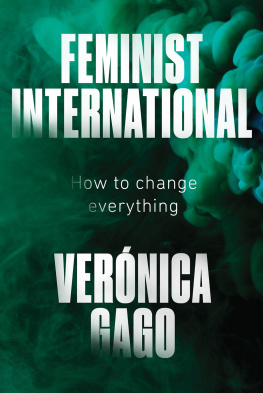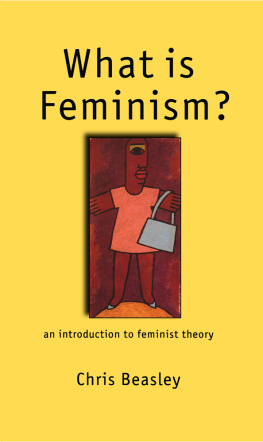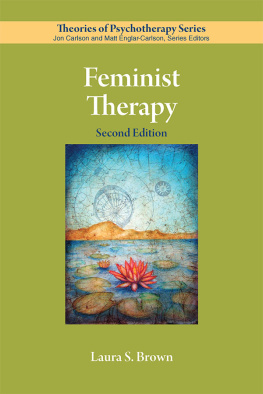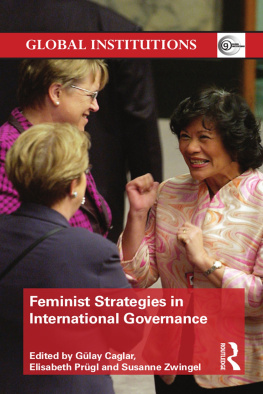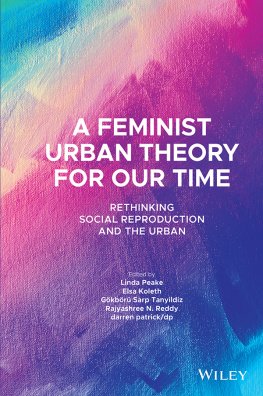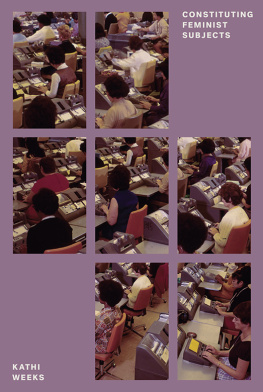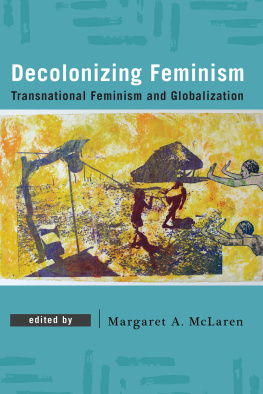Contents

Praise for Feminist International
Feminist International is at once a detailed account of the events, issues, and alliances comprising Argentinas recent feminist explosion and a splendid theorization of womens labors, spaces, bodies, voices, howls, connections, and potential for overthrowing transnational patriarchal powers. Housewives, students, health workers, domestic laborers, sex workers, scholar-activists, trans, straight and queerthey all dance on these pages. Beautifully written and translated, intellectually probing yet urgent in tone, Gagos work is indispensable for understanding how what began in Argentina half a decade ago came to rock the Latin American continent and the world.
Wendy Brown, author of
Undoing the Demos
Inspired by the internationally coordinated strike for March 8, Gago has given us a book that brilliantly captures the revolutionary potential of contemporary feminismits theories, its organizational forms, its strugglesall examined through the lenses of one of the most radical feminist movements on the American continent. It is a courageous and creative book, an ideal read for political formation; it opens new worlds and calls for action.
Silvia Federici, author of
Caliban and the Witch
This extraordinary book tracks, analyzes, and calls for a feminist international in the face of new forms of violence and dispossession correlated with patriarchal mandates, colonial extractivism, and radical strikes and assembly. Here one finds a thoughtful and galvanizing account of the feminist strike not only as an event, but as a process both collective and ongoing. For Gago, the strike always exceeds the act, the event, marking a vector of temporalities that both analyze the past and inaugurate a new futural horizon. Born from gestures of revulsion, the felt urgency of leaving those domestic enclosures that threaten to define and debase womens bodies, the feminist strike is linked with the general assembly, understood as a situated apparatus of collective intelliegence. Furthering the legacy of Rosa Luxemburg, Vernica Gago links the praxis of revolution to the critique of finance under neoliberalism, colonial dispossession, and patriarchal forms of state terrorism directed against women, trans, and transvestis, precarious workers and the indigenous. Working in collaboration with radical thought across continents, Gago offers in this book the most comprehensive transversal anaysis and the most compelling case for feminist praxis as the framework for an anti-fascist left. Embodied thought takes shape as affect, action, and a new understanding of collective potential. The activism for which Gago calls is already underway, and this book belongs to that revolutionary process.
Judith Butler, author of
The Force of Non-Violence
Feminist International
How to Change
Everything
Vernica Gago
Translated by
Liz Mason-Deese

For Raquel, Nati, and Luci
First published by Verso 2020
Originally published in Spanish as La potencia feminista:
O el deseo de cambiarlo todo by Tinta Limn 2019
Vernica Gago 2020
Translation Liz Mason-Deese 2020
All rights reserved
The moral rights of the author have been asserted
1 3 5 7 9 10 8 6 4 2
Verso
UK: 6 Meard Street, London W1F 0EG
US: 20 Jay Street, Suite 1010, Brooklyn, NY 11201
versobooks.com
Verso is the imprint of New Left Books
ISBN-13: 978-1-78873-968-9
ISBN-13: 978-1-78873-970-2 (UK EBK)
ISBN-13: 978-1-78873-969-6 (US EBK)
British Library Cataloguing in Publication Data
A catalogue record for this book is available from the British Library
Library of Congress Cataloging-in-Publication Data
A catalog record for this book is available from the Library of Congress
Typeset in Sabon by MJ & N Gavan, Truro, Cornwall
Printed and bound by CPI Group (UK) Ltd, Croydon CR0 4YY
Contents
Habent sua fata libelliBooks have destinies of their own.
As quoted by Rosa Luxemburg
If there is one thing we have seen in the process of constructing a feminist internationalism, it is that internationalism (and transnationalism and plurinationalism) are only possible through practices of translation. Translation from one language to other, but also from one context, and its associated histories and geographies, to another, translations across asynchronous temporalities and uneven spatialities.
In translating this book, we aim to bring some of the key innovations of the feminist movement in Argentina to a new, transnational audience. These innovations are as practical as they are theoretical, in that they demonstrate the impossibility of separating theory from practice and bodies. They include, for example, a feminist strike that creates a new notion of what it means to strike based on expanding what we recognize as work and a feminist internationalism that creates a new notion of how we define the relationship between bodies and territories and the relations between one territory and another. Fundamentally, these point to a feminist methodology that starts from mapping specific experiences of violence and exploitation and connecting them through practices of situated assemblies and coordinating networks. It is this methodology that we hope to share.
But first, a few notes on the translation are needed.
We have chosen to maintain the direct translation of certain terminology that has emerged through struggles within the feminist movement in Argentina. Namely the use of the term travestis and the longer formulation of the movement of women, lesbians, trans people, and travestis. While the word transvestites clearly has a derogatory connotation in English, in Argentina, travesti continues to be used as a form of self-identification and collective mobilization. The travesti movement in Argentina has publicly organized for decades through organizations such as the Asociacin de Lucha por la Identidad Travesti-Transsexual, founded in 1997, and has achieved key victories, such as the Gender Identity Law passed in 2012 and generally considered to be one of the most progressive in the world due to its lack of barriers for officially changing ones gender identity.
However, travestis primarily refers to a political identity. As Argentine travesti activist and thinker Lohana Berkins argued, in Latin America, the travesti community has organized itself in a context both materially and discursively distant from the North American academia and medical procedures. She defines the origins of the travesti identity: In Latin America, the term travesti comes from medicine and has been appropriated, reelaborated, and embodied by travestis to name themselves. That is the term that we recognize ourselves as that we choose to construct ourselves as subjects of rights. Much of the travesti movement has focused on fighting against labor discrimination, which forces nearly 90 percent of travestis into the informal or precarious sector, often in sex work, and for rights in that sector, as well as against discrimination in housing. Here identity is not separated from class position, and indeed it demonstrates their inseparable nature.
On the other hand, the formulation of women, lesbians, trans people, and travestis (and more recently gender non-conforming people) might sound redundant or unnecessary in English. However, it is the result of years of debate within the feminist movement and the construction of shared collective subjectivities. Each of those collectivities has its own history of struggle and organization and has fought to expand the meaning of the feminist movement, its concerns, demands, and practices. Those fights often involved uncomfortable assemblies and conversations, forcing all involved to challenge their previously held assumptions. They continue requesting to be named within the Argentine feminist movement, in mobilizations and gatherings, so we honor that request here. What these movements have shown is that the meaning of woman or feminist cannot be taken for granted, that the feminist movement is far from unitary, but taking that into account makes the collective struggle that must stronger.

